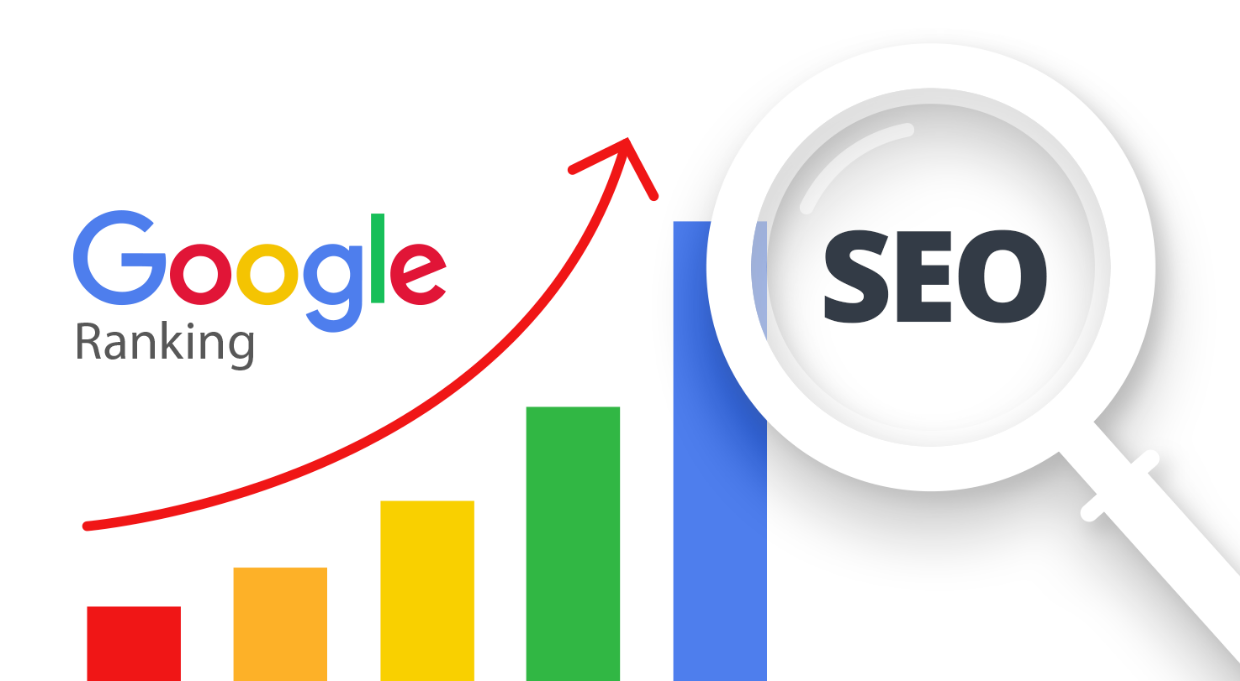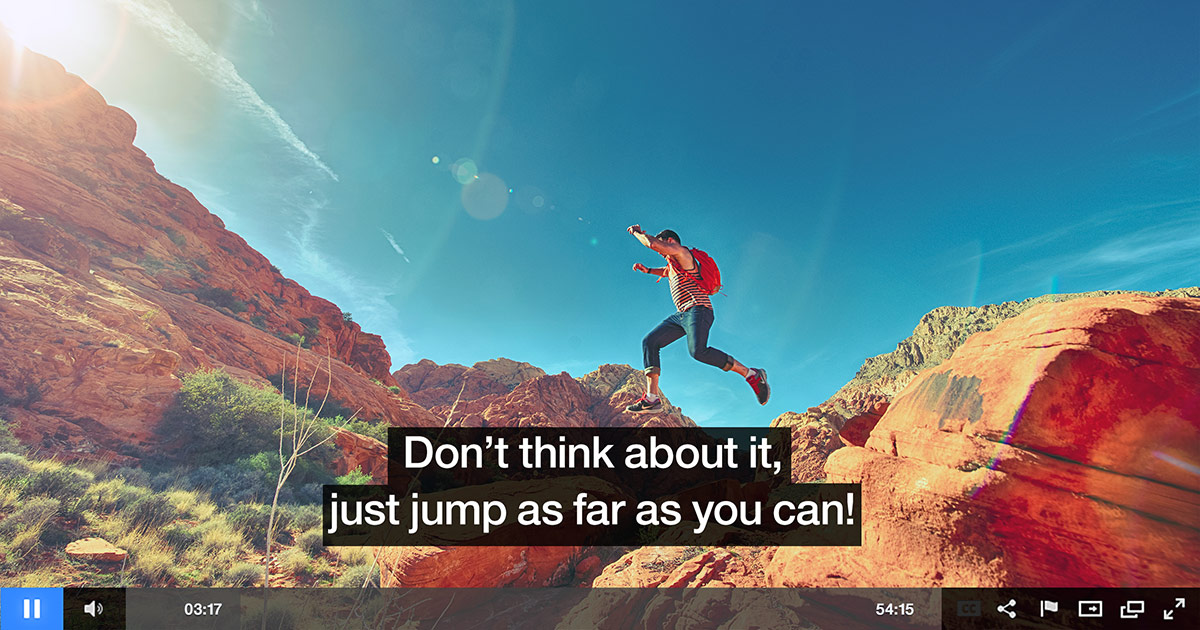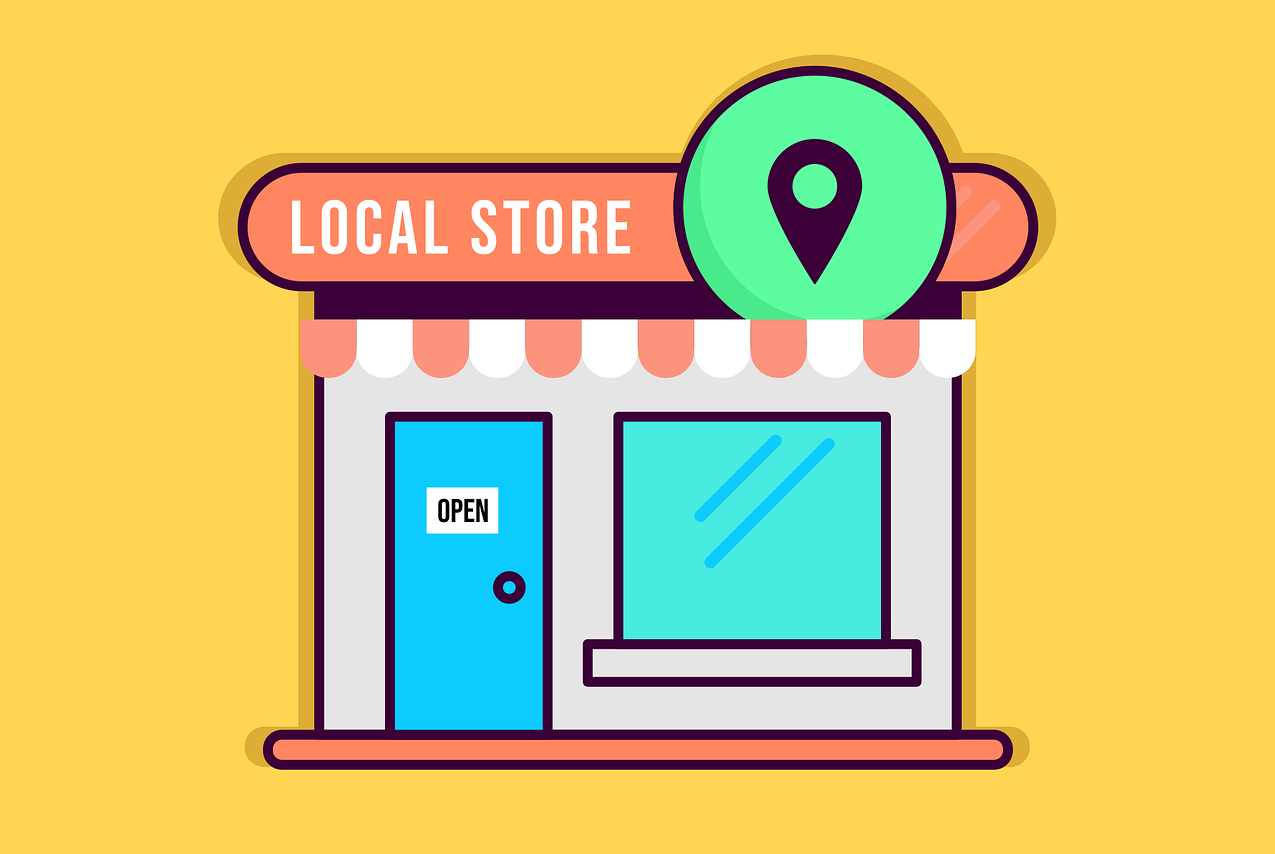![Marketing Under the Influence[r]](https://oculu.com/wp-content/uploads/2022/04/marketing-under-influencer.png)
Marketing Under the Influence[r]
Influencers. The elusive entity some are calling the next big thing in marketing. You’ve heard the tales, and maybe, even seen them with your own eyes while scrolling through your social media platforms. To many of you, said “influencers” rattle your mind with questions that keep you up at night. What is an influencer? What do they do? Why is everybody in my industry talking about them? Where do I find them? WHAT IS THE BIG DEAL?!
We’re here to let you in on the magic. Believe it or not, influencers are just people. Like you and me. They just happen to have a lot of, uh, influence. That’s it. Truly.
Don’t get us wrong, we are not trying to downplay the role of influencers. In fact, we’re here to sell you on their enormous impact on brand marketing trends and success. But, we also want to remove the stigma that using influencers is not for you, or out of your brand’s reach. Here’s the deal, straight up:
Customers don’t want to see advertisements anymore. In fact, they’ll do whatever it takes to actively avoid them – pay platforms more money to have an ad-free experience, lose interest completely in a platform that advertises too much, etc. This puts advertisers in a tough spot because we actually need to advertise our brands/products to make money. Luckily for us, influencers are the loophole we need to spread our business to potential customers, in a way that is all subtle, relevant, authentic, and wildly beneficial.


In 2022, influencer marketing is now a mainstream form of online marketing. It’s been quite the buzzword for a few years now and has surpassed its role of being a marketing “option” to being a marketing “necessity.” And though the idea of influencers may seem foreign and risky, the concept is actually just a hybrid of marketing tools we already know and love. Influencer marketing takes the idea of celebrity endorsement and places it into a modern-day content-driven marketing campaign. The main differentiator in the case of influencer marketing is that the results of the campaign are collaborations between brands and influencers.
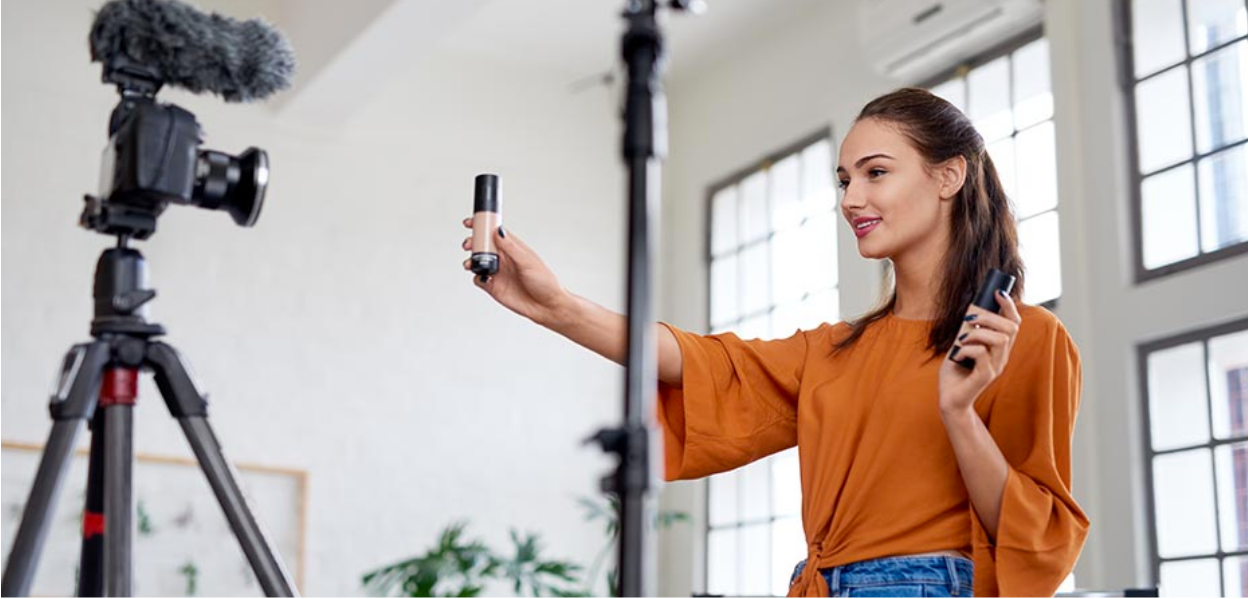
To solidify that point, it’s important to understand that influencer marketing is not strictly our version of celebrity. Most often, people considered “influencers” are people who would not consider themselves famous in an offline setting. Instead, they are people who have the power to affect the purchasing decisions of others because of their authority, knowledge, position, or relationship with their audience. Lastly, the power of an influencer doesn’t solely lie in how large their following is, as some influencers who achieve great advertisement collaboration results have 10,000 followers or less, but in the level of trust, loyalty, and engagement of the followers they do have.
In the words of probably every influencer ever, follow the trends: Influencer Marketing is on the Rise
We live in a very “everybody is doing it” type of world and as much as it pays to stand out, in marketing, we should probably follow the trends of our fellow advertisers. In this case, it’s using influencers to market their brands, products, and services. Influencer marketing is on the rise and we don’t see it slowing down anytime soon.
A new report by Wearisma shows that 86% of social media users rely on social media platforms for their purchasing decisions. This means that people are actively using their social media platforms to shop for products, engage with brands, and become customers. We’ve officially moved past social media strictly being a place to socially interact with friends and family and graduated to social media also being a selling supergiant. And the pool of marketing opportunities is bigger than you may think.

Around the world, more than 50 million people would define themselves as creators, which would explain how power has officially shifted into the hands of influencers and content creators – they’re everywhere. And knowing that there are so many collaborative advertising options with such influencers and creators, it makes sense that 75% of a recent survey’s respondents in the marketing industry indicated that they would be dedicating a specific budget to influencer marketing in 2021, to increase in 2022. This is a drastic increase in fellow marketer enthusiasm as the overall interest in an influencer marketing budget was at a low 37% in 2017.
Though the results are highly positive and upward trending, you may have the concern that perhaps influencer marketing is not right for your brand due to an idea that social media only caters to a young demographic. For some, that may not be the demographic you are trying to target. But, from our vast knowledge of platforms, influencer marketing is not ageist and can extend into pretty much any demographic you are trying to reach. For example, the majority of ages on TikTok are 18-24, while they range 54+ on Youtube, andwhere from 18-44 on Instagram. Combined, this accounts for almost all demographic groups, proving that content creators can target all audiences.
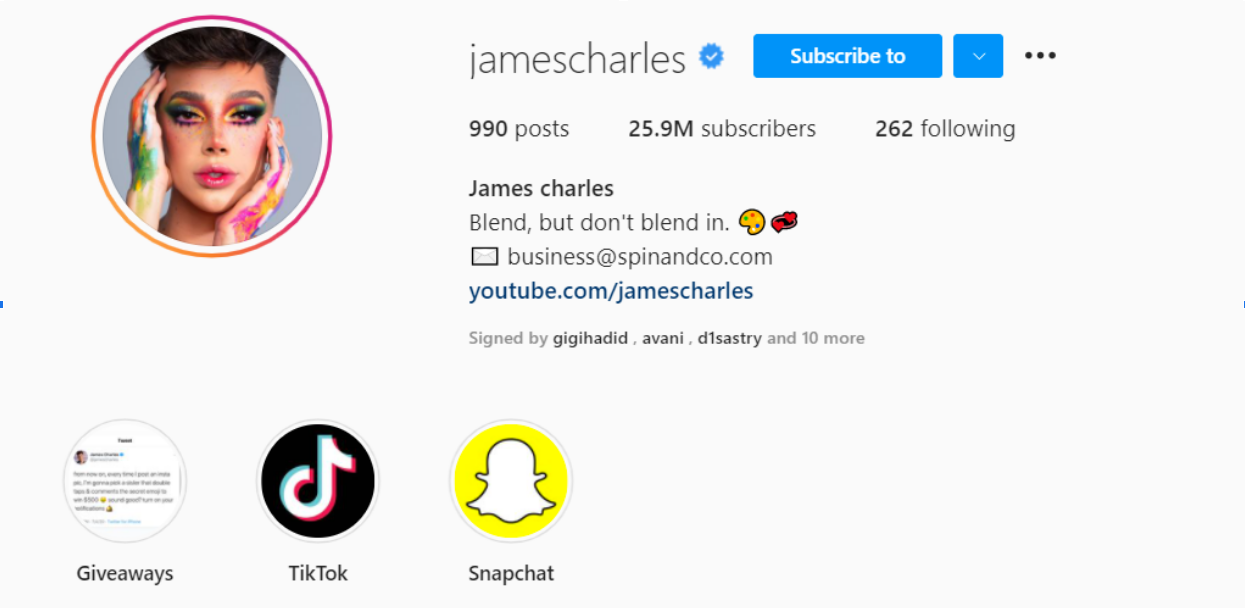
If you’re still on the fence about just how effective this method is, here are some more statistics given to you straight up, no fluff, that might get you on board:
- Influencer marketing has grown to $13.8 billion in 2021.
- Businesses are making $5.78 ROI for every $1 spent on influencer marketing.
- 90% of survey respondents believe influencer marketing to be an effective form of marketing.
- There has been a 465% increase in searches for the phrase “influencer marketing” on Google alone since 2016.
- 67% of brands use Instagram for influencer marketing.
- 1360 Influencer marketing focused platforms and agencies entered the market in the last 5 years alone.
Influencer marketing is no longer on the up & coming, it’s here, and it’s the now
But, what makes people more inclined to buy products from an influencer?
As human beings, we’re influenced by what we see, whether we like it or not. Trends come and go as we see new things we like and things we’ve grown tired of. The use of influencers is an embodiment of somebody creating such trends, but they are perhaps most successful in marketing because they bring a level of authenticity, closeness, and trust to the table in ways a normal advertisement can’t always achieve.
Today, social media is more casual than it’s ever been. In particular, most content being posted to platforms such as Instagram, is people posting directly from their phones, moments of their day to day lives, personal nuances, and more. We’ve moved past the era of social media that praised highly edited photos and meticulously curated aesthetics. This could partially be due to the strain of the pandemic. It seems as though now more than ever, people have gained a bigger appreciation for the mundane yet authentic forms of content as it makes us feel closer to who we follow. In times where connection was hard to obtain, distanced and shaken by a more solitary type of lifestyle, finding genuine moments of connection, even virtually, has become a treasure. Therefore, customers want to feel as though the people they are engaging with and following on the internet are real people, just like them, that they can trust for content, recommendations, and more. People want real more than ever. And what sells more than real people really promoting a brand that they really use?
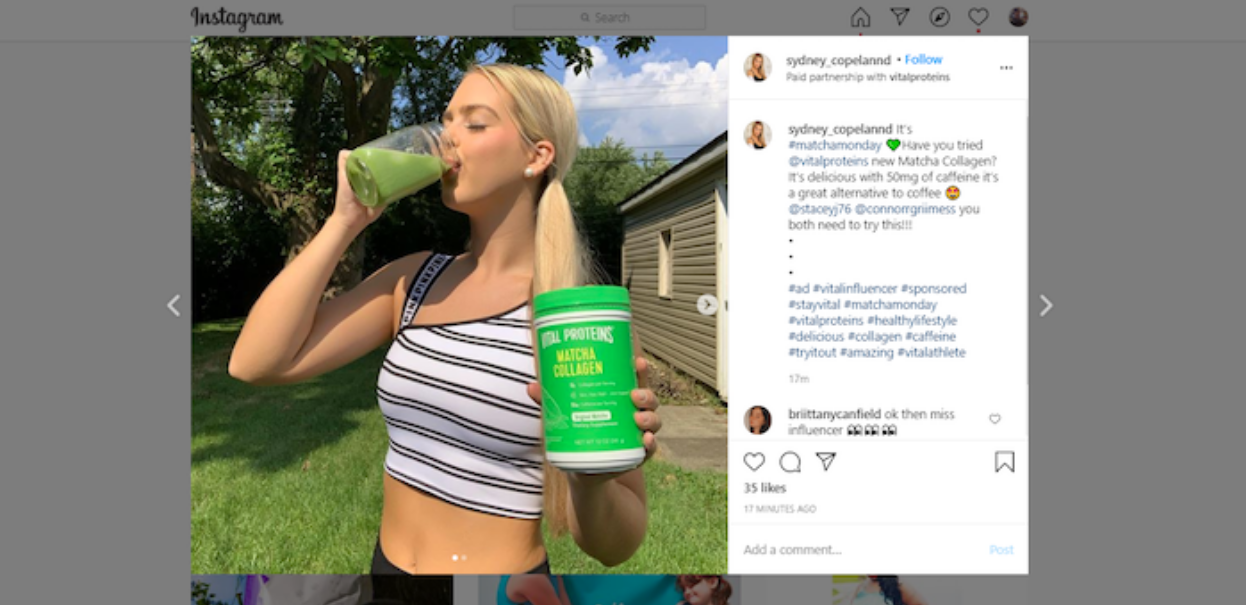
Though influencers typically have thousands to millions of followers, it’s important to realize that most influencers have systematically built a keen and enthusiastic audience that is there for who they are and what they post because typically the audience base aligns with values, content, niche, expertise that the influencer has made their personal brand. It’s not accidental or lucky that these people follow influencers rather than a brand. Which goes to say, an influencer’s audience really couldn’t care less about your brand. Harsh, we know. But what your brand’s saving grace is that their audiences care SO much about the opinion of the influencer they follow. Therefore, if you can find an influencer that honestly aligns with your brand, product, or service, their audience will likely bite because the influencer has gained their audience’s genuine trust and loyalty. And though it may take time for you to find the right influencer to promote your brand, we promise there is someone out there for you.
Unlike celebrities, influencers can be anywhere and anyone. What makes them influential is their large followings on the web and social media. There are multiple lanes, as well, that an influencer can fulfill – fashion photography, a well-read cybersecurity blogger, a passionate food connessier, therapists, somebody who breaks out NFT and Crypto for dummies, respected authority figures – if you’ve got a product, there’s an influencer out there who would probably love to collaborate and share with their audience. Within any industry, there are influential people—you just have to find them. Some will have hundreds of thousands (if not millions) of followers and many will seem more like ordinary people; as we’ve mentioned before, some influencers can have less than 10,000 followers. Yet, the consistent reputation they have fostered online is what makes them so influential to the people who have now dedicated their loyalty to them online.
Essentially, consumers aren’t stupid. They know an advertisement is actively trying to sell them and that the ad will say whatever they think consumers want to hear/believe. But, when a person who a consumer has built an online relationship with, been in conversation with, grown to trust, they’re much more likely to buy into your brand if they’re being exposed to it by said influencer. Business Insider’s Influencer Marketing Report found that the average influencer engagement rate across industry verticals was 5.7%, while the average engagement rate for brands on Instagram alone was between 2% and 3% in 2018.
Okay…but why me?
Even after that enthusiastic breakdown on who the elusive influencer creature is, you may still be wondering why your brand should utilize influencer marketing. Maybe you feel like your ads are doing well enough. Why get other people involved? Whatever the hesitation may be, your questions are nonetheless valid. So here are some final reassurances.
By using influencers to market your brand, you have a unique opportunity to target real people who are expecting real brands, which can bring you real success and customer loyalty if achieved. Remember that influence doesn’t mean popularity and your goal should be to elicit a particular action from your customers. This means the power of your success is in your hands on the basis of choosing the right influencers whose real matches your real.
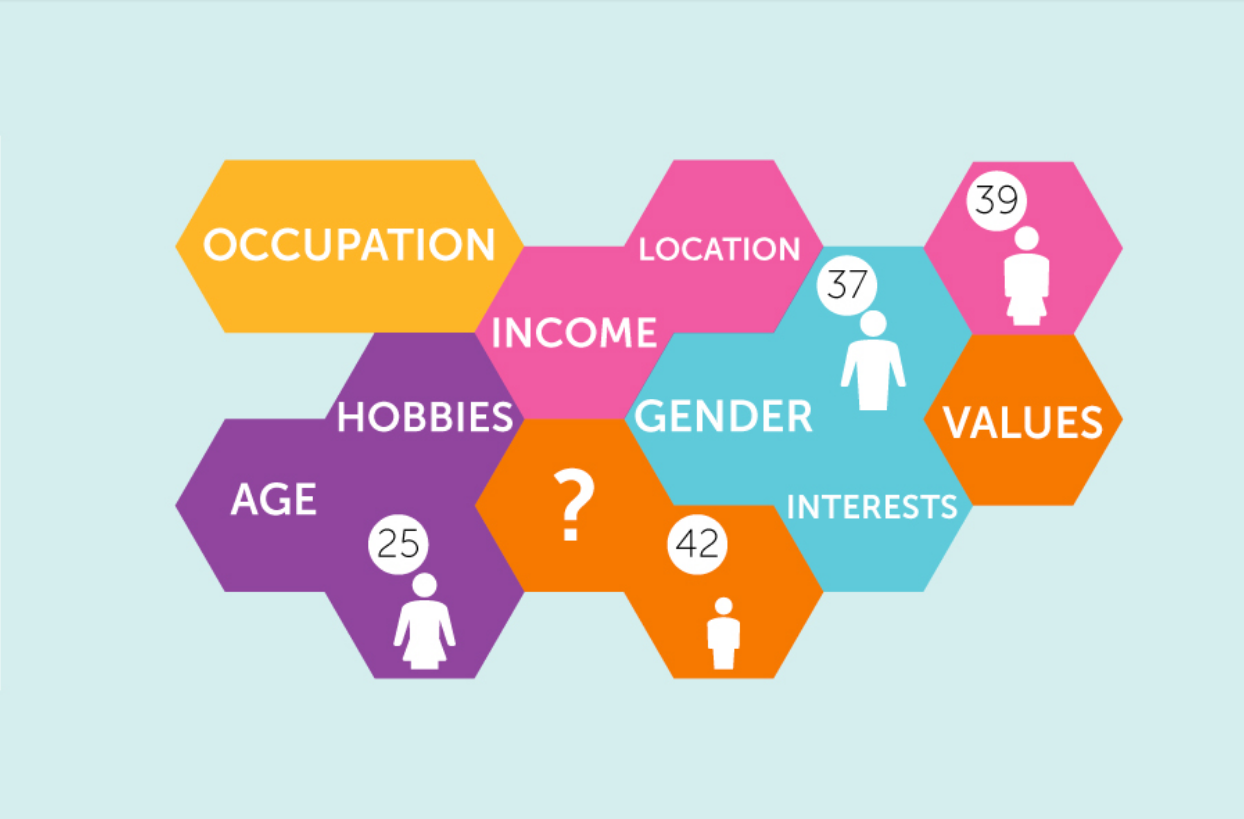
The stats provided above tell us that our time is better spent marketing directly to influential people whose likes and dislikes we already know, of which also align with your own. When you effectively select and work with influencers who match your brand and authentically share it with their audience, you can gain up to $18 in earned media value for every dollar spent on influencer marketing, according to a 2019 report by Influencer Marketing Hub. We can only imagine that number has gone up in more recent years. A few other benefits to using this advertising method are brand credibility growth, less content creation pressure on your end, overall traffic increase, and improved SEO rankings.
The trust and loyalty that social media influencers establish with their audiences is perhaps their strongest and most valuable asset to your business. According to a 2017 Choozle survey, only 7% of people viewed online advertisements positively. On the other hand, MuseFind reported that 92% of consumers trust recommendations from strangers/influencers over brand advertisements. Therefore, if you want your customers to not only buy your products, but also trust the brand enough to be that stranger to somebody else, using influencers to spread the word of your brand is your best bet.
Furthermore, using influencers takes a lot of pressure off of your own team to create brand advertisements themselves. A lot of companies hire marketing teams to generate content, which oftentimes revolve around content publicity, and making said content go viral. Influencers serve as a loophole to simplify this process. Content created by influencers is typically entirely up to them, which makes it come off so genuine and non-seller-like. You can look at it like user-generated content that instead of an ad, comes off like a credible testimonial or product review. Their audience will then see their content as unbiased and will be more likely to use your product than if they had been exposed to it via an unwanted ad.

On the same token, using influencers also promotes organic traffic and following to your brand’s page. Influencers are the closest thing to “word of mouth” marketers can access at such a grand scale. The one on one nature they founded with their followers, has given influencers the power to create a super organic and authentic online community. Therefore, their promotion of your brand will bring in customers who already trust your brand a little bit and are genuinely curious to learn more, try it themselves, or engage with your content.
Lastly, influencers can also improve your SEO rankings. Working with influencers doesn’t always mean that they’re posting your product or services on their social channels. You also have the ability to collaborate with them by simple name drops and mentions of your brand onto their blogs, or even simply, repositioning one of your website’s articles. If you go this route, it can result in generating high-quality backlinks to your website, which improves your SEO. Backlinks are a crucial component of any SEO strategy. Search engines like Google are constantly changing their algorithms to filter out junk posts. Having natural links on an influencer’s page to your site or blog boosts your page in Google’s search results.
